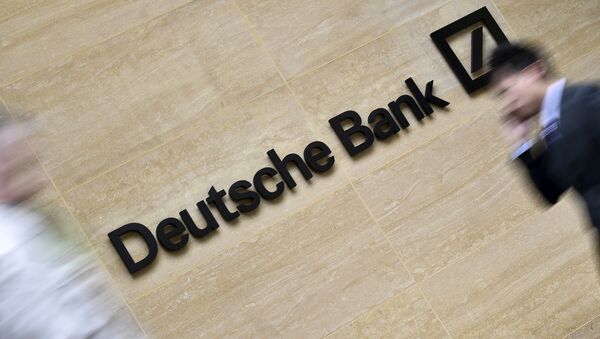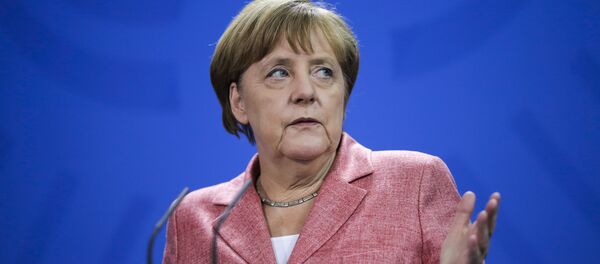Kristian Rouz – Trouble for Deutsche Bank AG seems to be far from having ended. Earlier this year the lender was badly shaken by a $14bn fine imposed by the US Department of Justice (DoJ) for the bank’s malpractice in mortgage issuance dating back to 2005.
Moreover, Deutsche Bank finds itself under attack on the German front as well: domestic regulators commenced a probe into the lender’s alleged manipulation of its internal indices used to set price on the Italian company, Banca Monte dei Paschi di Siena (BMPS), in 2008. An audit undertaken by the German watchdog, suggests the bank might have rigged its pricing procedures in order to cash out on the BMPS deal concluded in December 2008, at the height of the global financial meltdown.
With precious metals, however, the filed lawsuit claims Deutsche Bank and other world’s major lenders conspired to modify the spot prices on silver.
Deals on the metal, the plaintiffs allege, were agreed upon via phone calls in advance on a daily basis, resulting in practice similar to insider trading, entailing losses for some market participants and unfair advantage for others. If proven, such a practice might be determined as illicit trading strategy, exacerbating Deutsche’s already tumultuous performance due to even higher legal and litigation costs.
"UBS was the third-largest market maker in the silver spot market and could directly influence the prices of silver financial instruments based on the sheer volume of silver it traded," the lawsuit reads. "Conspiring with other large market makers, like Deutsche Bank and HSBC, only increased UBS’s ability to influence the market."
According to the records from Deutsche Bank, two of its traders had directly communicated with two traders from UBS, exchanging information on customer buy-sell bids, initiating customer stop-loss orders and submitting knowingly fake bids with an intention of their revocation prior to execution in order to inflate prices (‘spoofing’).
Precious metals are amongst the so-called safe haven assets, rising in demand in times of rife volatility in stocks and real economy assets. Yet, if silver and gold prices had indeed been manipulated to a certain degree, their haven status will be put into question.
As for the probe by the German authorities into the alleged Deutsche’s unsavoury role in the Monte Paschi deal in 2008, a yet another manipulation scheme might be revealed in Deutsche’s operational practices.
“The Paschi deal is dependent on indexes, and then the indexes may have been manipulated to be more in favour of Deutsche Bank,” Michael Dempster of the University of Cambridge’s Centre for Financial Research said.
According to an audit conducted by the German watchdog, Deutsche’s employees might have been trading futures in a particular way in order to affect the movements of indices, which, in turn, impacted the value of the Italian lender.
“A targeted impact on the indices due to an increased level of trading activity could be ‘concealed,’’’ the audit discovered.
However, no conclusions have been made, and it is unclear whether any punitive or further investigative action will entail.
Apparently, watchdogs in the US and Europe, Germany, in particular, have been monitoring similar operations by several of the largest international banks over an extended period of time. Recent revelations of bank malpractice might eventually be used as leverage in order to contain the riskiest bank trading operations on a global scale in an effort to curb market volatility in the wake of emerging challenges. The risk of Italy exiting the euro is one of these.
However, all these measures have proven insufficient, as banks have extracted great value from market fluctuations caused by the product they have been selling. Increasing regulative pressure is likely to hamper banker meddling with the open market, however, it would be quite challenging, if not impossible, attempting to significantly diminish the role of lenders determining broader market moves.
“Those investors can’t understand the investments themselves, let alone the indexes,” Craig McCann of Securities Litigation & Consulting Group said. “Fundamentally, such a product is great for investment bankers. Not investors.”
Meanwhile, Deutsche Bank’s market value advanced to 6-months highest amidst the anticipation of the European Central Bank (ECB) additional stimulus aimed at preventing Itexit. Yet, with all the new trouble looming, Deutsche’s current investment rating is ‘sell’, according to a report by DZ Bank AG. Bank equities worldwide might be battered by the impending standoff with watchdogs over questionable practices in the months ahead.






